“I can’t remember if I cried When I read about his widowed bride Something touched me deep inside The day the music died”
— Don McLean, American Pie
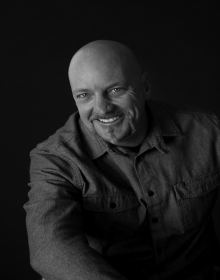
by Luke Schmaltz
As with any art form, there are dabblers, there are enthusiasts and there are absolute fanatics. For years, Denver has encouraged all manner of minstrels from prodigies and virtuosos to working players and weekend warriors. These dynamics play into the fickle nature of music, as trends turn over at hypersonic speeds — prompting fans to abandon a movement just as quickly as they adopted it before even considering its merit. Similarly, some musicians are quick to call it quits when a new fad, craze or in this case — a pandemic — comes along that does not resonate with their aspirations. Some, on the other hand, refuse to hang it up at any cost.
Way Back When
Before mid-March of 2020, Denver’s diversity made for an exciting ensemble — an aural offering of such variety that just about any night of the week you could find some kind of a sonic display going on, whether it was rock and roll, country, hip-hop, blues, electronica or even the ear-splitting cacophony of a dive bar karaoke night. All this has changed now, as Denver venues have, for the most part, been forced to shut down their operations. Mainstays such as the Gothic, Bluebird, Ogden and Marquee theatres are shuttered along with big venues like Red Rocks, the Fillmore Auditorium, Denver Coliseum, Mission Ballroom, Levitt Pavilion and more. And then there are the little guys — the lifeblood of local musicians and C-circuit touring bands. Places like Lions Lair, Hi-Dive and Larimer Lounge are hanging on by a thread while Live at Jack’s, Armida’s, 3 Kings Tavern and Skylark Lounge have closed permanently.
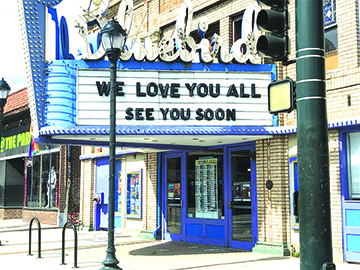
A Fragile Construct
Many a working musician has contended with smug, demeaning and dismissive venue owners and booking managers who think musicians need them and not the other way around. Conversely, many a club manager has dealt with the insufferable whining of fledgling musicians who think they have the world coming to them on a platter just because they can play 12-bar blues. In reality, it’s a symbiotic relationship, with only the hardiest (or luckiest) of either archetype standing a chance of making it out the other side, identity intact. From a musician standpoint, the hobbyists and weekend warriors will sit this one out while the diehard, lifelong players, composers and engineers will grind on — adapting in stubborn overtures of Darwinian survival.
Stalwart Strategies
The Hibernator

Aaron Howell is the captivating singer and frontman for Denver-based hard rock favorites MF Ruckus. An international touring act that has long-graduated from dive bars and house parties, they are the type of mid-to-large-draw touring band forced into hiatus due to mass closure of theatre-sized venues. Not one to easily, if ever, admit defeat — Howell has chosen to see the pandemic through an esoteric lens. “Some of the greatest learnings in human history have happened during times of plague,” he explains. “It’s one of the default settings that we, as musicians, are built to run.”
“There’s an old Russian saying,” Howell continues, “If you chase two rabbits you catch none.” Rather than lose sight of his goals, he has chosen to intensify his focus. Putting his money where his mouth is, Howell has begun expanding his horizons by taking online music courses to enhance his guitar skills. “Now that the world has shut down, the tethers holding us to any excuse to not try new things have frayed away. Although Howell is not all rainbows and sunshine, he does maintain the glint of a steel-tinted silver lining: “I think about quitting every day. But what keeps me going, is that my obsessive completionism won’t let me leave anything unfinished.”
The Prodigy
Tim Merz — aka Timmy Flips — is the dynamic, triple threat creative force behind hybrid punk/metal outfit Red Stinger. Before the shutdown, when he wasn’t arranging complex lyrical hip-hop overtures or riff-heavy rock and roll tunes, he was working as owner/operator/head instructor of Booth Dance Studios — teaching ballroom dance and other disciplines of movement to a large, diverse, demanding student body. Unlike most folks, Merz did not regard the shutdown with dread, as his own physical exhaustion was on course to slow him down one way or another. “When I heard there was a possibility we’d be put on lockdown, it saved my life, really. I had an overwhelming sense of relief because my life got to pause, and I finally got to breathe.”
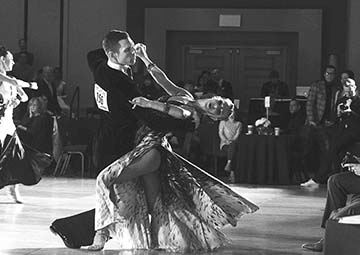
While counterintuitive to most, Merz’s perception of the situation was as unorthodox as his self-appointed artistic trifecta of punk rock, hip-hop and ballroom dance. He wasted no time shifting focus as an overextended teacher to a hyper-productive musician. “Once I accepted the shutdown was imminent, the faucet opened up and I decided to just do me … for the first time ever I was like — what a gift, what a blessing — it was exactly what I needed. Since mid-March, Merz has written a two-person dance piece and a full cast stage dance show, recorded a hip-hop album and written a four-part Red Stinger musical series titled The Stinger Scriptures — soon to be released in four separate recordings.
The Adaptor
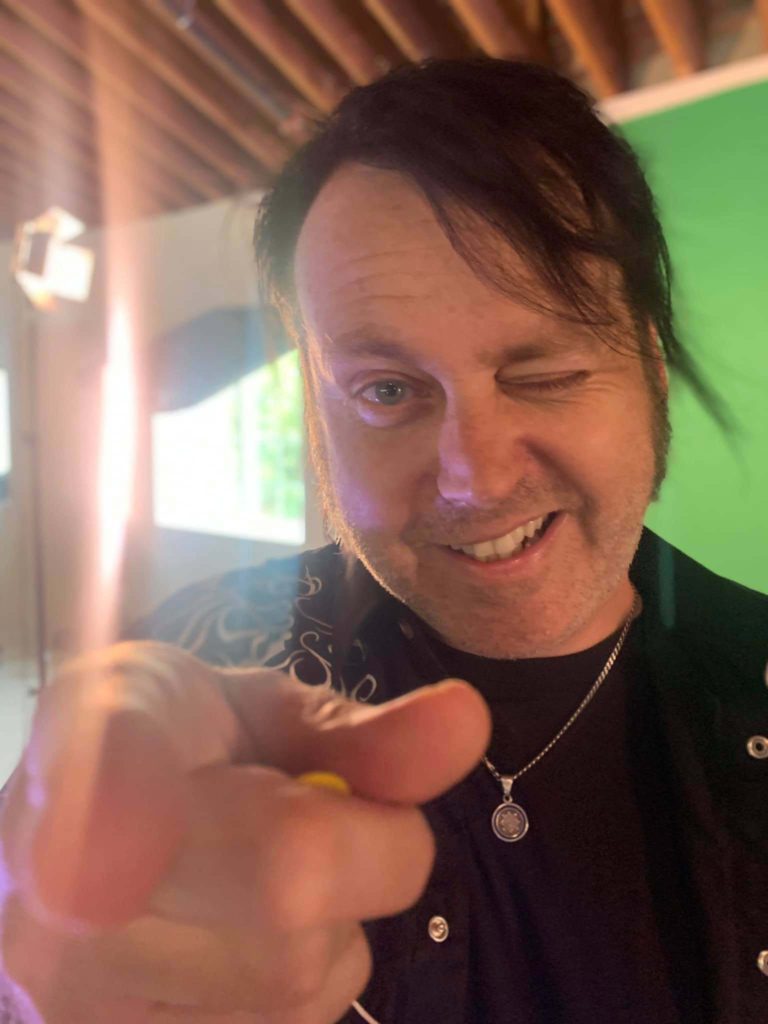
Bart McCrorey is the proprietor and sonic wizard behind the Crash Pad studio as well as a slew of bands including Messiahvore, Throttlebomb, Valio Mierda and The Pitch Invasion to name a few. He has produced and engineered records for tens of dozens if not hundreds of Denver bands over the past 20 years. The shutdown put a serious damper on studio recordings at first, but he was quickly able to switch to working virtually — having musicians send him raw tracks recorded remotely that he could then enhance, add accompaniments to, mix and master to his clients’ content.
Two of McCrorey’s bands have also been among the select acts to participate in Safe and Sound — a music series put on by the Oriental Theater — one of the few large venues to remain in operation during the pandemic. No small feat, as every event must be monitored scrupulously for adherence to social distancing guidelines and capped at 25% occupancy. On the fun side, McCrorey used everyone’s favorite social media garbage chute, Facebook, to introduce an interactive page that threatened to turn the tide from despondent and divisive to upbeat and educational. Riff Book was launched in the early days of the lockdown and quickly grew to nearly 1,000 members sharing guitar licks, songs and solos rather than polarizing rhetoric and sob stories.
The Troubadour
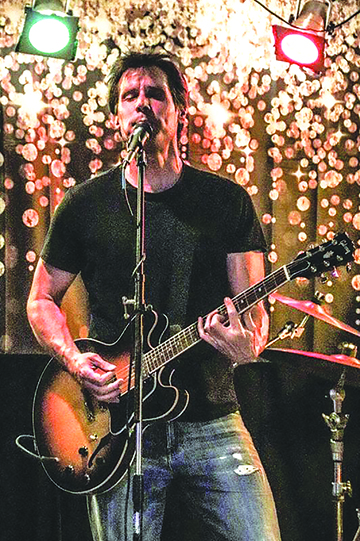
Tony Luke unplugged his guitar for only as long as the Colorado governance mandated and not a measure more. The renowned bluesman is locally revered as one of the best in the business — from his generation (X) for sure. Avoiding the popular downtown clubs and trendy hipster bars, Luke prefers the mom and pop dives of the Denver outskirts, which are somewhat removed from the intense scrutiny of most establishments near the city’s popular epicenter. After being forced to take nearly three months off (April through June) Luke began playing his local circuit of small venues tucked away in suburban strip malls and semi-rural thoroughfares. Contrary to Aaron Howell’s aforementioned MF Ruckus, Luke’s band is just the right size of small but mighty. “Bands that are bigger fish present a problem for venues right now and no one wants to book them,” he attests. “But I’m a roadhouse band, so I play for existing audiences and turn them into fans by the end of the night.”
Luke was pleasantly surprised that bar patrons were overly exuberant and yes, even thankful for live music in unprecedented ways. “I have found success in the pandemic because people are starved for music,” he explains. “My tip jars have tripled from 80 dollars or so to sometimes 300 and 400 bucks a night.” He chooses to view the circumstances through a romantic lens of sorts, stating “I am seeing this time as a sort of renaissance of the old-time juke-joint type of blues nights. You know, when there were no other shows going on and no big concerts — just a couple guys on a small stage in a little bar and people really, really appreciated the music.”
